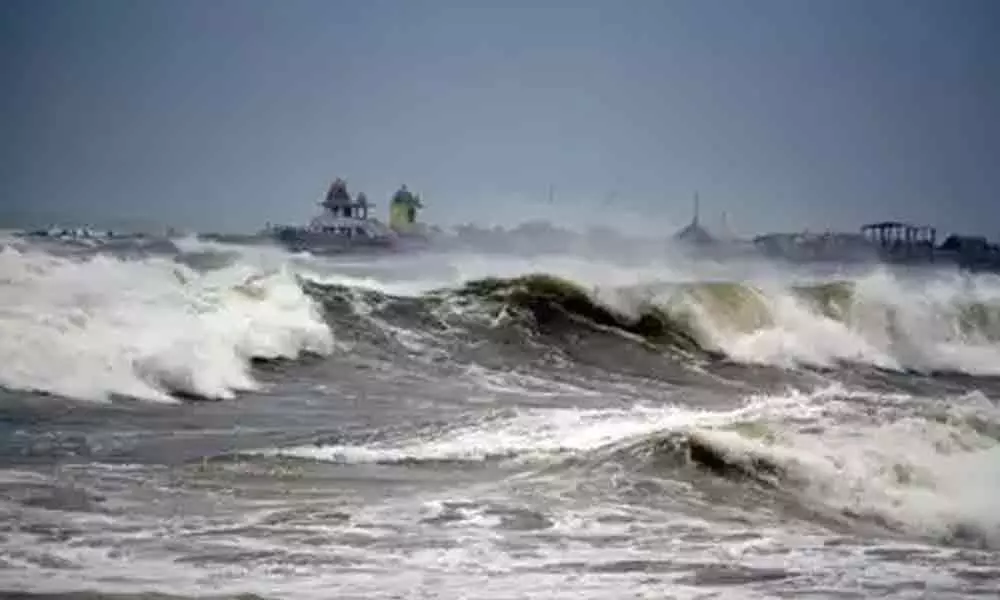Not just corona, more disasters like Amphan in store
 Amphan Cyclone
Amphan Cyclone
'Super cyclone' Amphan barrelled towards Bangladesh after its first landfall at Digha in West Bengal. This disaster comes at a time when West Bengal, Odisha and Bangladesh are struggling to cope with the deadly coronavirus. This disaster which happens to be the first super cyclone of 2020 adds to the woes of the people who are already financially battered by Covid-19 impact. Though the Central and the State governments were on high alert and took all necessary measures to face the impact by evacuating millions of people in anticipation of the storm, which originated in the Bay of Bengal.
The first super cyclone in the area since 1999, Amphan is feared to cause deadly storm surges, severe flooding and mudslides. This has made the issue more complicated as social distancing which is necessary to prevent surge in spread of coronavirus cannot be followed as the need of the hour is mass evacuation of people to safety. Reports indicate that there were even emergencies like a woman in Odisha delivered baby in fire service vehicle during cyclone. The fire brigade personnel received an SOS from the distressed family of a 20-year-old pregnant woman.
It was a herculean task reaching her for the fire services personnel since they had to face obstruction due to uprooting of 22 trees along the stretch of the village. It was really brave job by these warriors who faced strong winds and squally weather, they cleared the road and ferried the woman in the service vehicle. The woman went into labour midway through the journey, and the fire service personnel assisted her as she gave birth to the child.
Even as the real picture of disaster and damage to life and property has just started pouring in, there were some more instances like a poultry farmer living close to the Bay of Bengal coastline who was worried about leaving her farm behind to take shelter in a facility in Bangladesh's coastal region of Bagerhat as authorities went to evacuate her as the wind speed was increasing and weather office predicted that it would touch 180 kms per hour. Many were unwilling to move to shelters for the fear of contracting coronavirus.
The cyclone came at a time as tens of thousands of migrant workers continue to flee cities for their villages during India's lockdown to curb the spread of coronavirus. West Bengal and Odisha are among the Indian States seeing large numbers return. It is like jumping from frying pan into fire. They are returning to their villages as there is no work in the States where they had gone to earn a living and back home, they will have to grapple with the aftereffects of Amphan cyclone.
Bangladesh where the impact is highest, had evacuated two million people. Some effort has been made to distribute masks and maintain social distance, but to implement it when a natural calamity struck them is something that is impossible. Even under normal circumstances, where relaxations from lockdown has been announced, people refuse to follow the protocol. Expecting strict implementation in shelter homes would be foolishness.
There is also fear for hundreds of thousands of Rohingya refugees who fled Myanmar and live in crowded camps in Bangladesh. The main camps are not in the direct path of the storm, but Bangladeshi officials said they had moved hundreds of Rohingya living on an island in the Bay of Bengal into shelters. The UN and human rights groups are also gravely worried for hundreds of Rohingya refugees who they believe could be on boats in the Bay of Bengal, and possibly in the storm's path, after trying to flee to Malaysia and Thailand but being blocked by authorities in those countries from landing.
However, this cyclone should be a lesson for countries like India and Bangladesh which are prone to natural disasters like cyclone that they must live not only with corona but also with cyclones and super cyclones for next five months or so. These government should plan their economic strategies keeping this factor in mind. Similarly, the State governments which are prone to cyclones should also be geared up to meet the challenges of weather.







